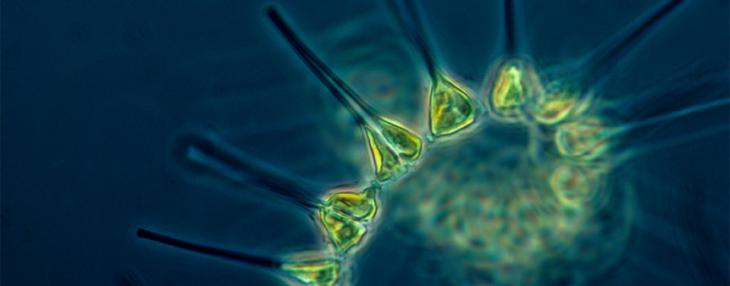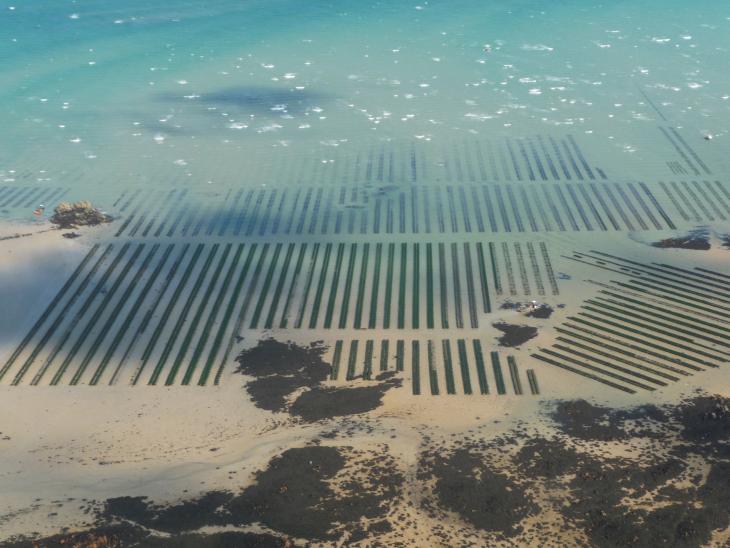What’s the Point of Certifying Bivalves? Here Are a Few Reasons…
July 29, 2020
Mussels, oysters, scallops – they aren’t the most expressive of animals, they don’t move around much, and they feed by ‘filtering’ the water – which some scientists think could be put to good use in efforts to clean up pollution.
They’re all bivalves – that’s a class of molluscs with hard shells in two parts – and based on the description above, you might think that farming them is always low-impact. In fact, a question we sometimes get is: what’s the point of ASC certifying these species? After all, they’re not liable to escape, and they are literally filtering the water, so would farming them really have much impact, even if it’s not managed well?
While it’s true that bivalves are some of the most fascinating animals in the sea, which can play an important environmental role, it’s wrong to assume that this means farming them doesn’t have an impact. And that’s important, because responsible farmers like those certified against the ASC Bivalve Standard put in a lot of work to ensure they’re minimising their impacts and we think that deserves recognition.
So to explain why the ASC Bivalve Standard is so important, we’ve gone through it and picked out some of the potential negative impacts that it requires farms to minimise.
Bivalves can be too efficient at filter feeding
Most bivalves eat phytoplankton – microscopic algae – by filtering the water, an attribute which could even be used by scientists to help clean up pollution, but it can also have a downside. Bivalves can filter out all of the phytoplankton in a body of water before the ecosystem can replenish them – which is obviously bad news for all the other animals that rely on these plankton, which are fundamental in the ecosystem. This is known as exceeding the ecological carrying capacity, and it’s something that ASC farms absolutely cannot do. The ASC Bivalve Standard uses some simply calculations to figure out if a farm (or group of farms) is exceeding this capacity.

Controlling disease and pests
A farm filled with shellfish makes a tempting meal for all sorts of animals, and farmers have been known to lose entire crops to predators. So they need strategies for protecting their shellfish – but it’s important they do this in a responsible way. The ASC Bivalve Standard requires that farmers do not harm any critical species, instead relying on deterrence or removal.
Bivalves are also prone to a number of diseases – though they are remarkable creatures, they have very primitive immune systems. But ASC certified bivalve farmers cannot use harmful chemicals to try to prevent disease outbreaks.
Impact on local communities
This may not be specific to just bivalve farms – but that doesn’t make it any less important. Most bivalve farms operate in coastal waters – and these waters are often in high demand from many different groups who all benefit from the area in different ways. ASC farmers must be considerate neighbours and conscientious coastal citizens, proactively communicating with local communities and ensuring their farming doesn’t prevent others from enjoying or using the coast.
They must ensure they’re good neighbours in other ways as well – ensuring the farm’s gear doesn’t prevent safe use of the water for navigation, for example, and it must also be clearly identifiable to the farm, with a clear protocol in place to retrieve any gear that gets lost. Marine plastics and litter are becoming increasingly important issues of course, and ASC is currently reviewing its requirements on this subject for all farms to ensure they are based on the latest science.

Social responsibility
Again, this doesn’t only apply to bivalve farmers but is no less important for it – all ASC farms must be socially as well as environmentally responsible. This means being a good employer as well as a good neighbour. All ASC farms must of course comply with local and international laws when it comes to forced or child labour, and the ASC standards go further than that – workers must be given adequate health and safety training and equipment, must be paid fairly, and must not be subject to abuse of working hours or overtime.
So that’s just a little taste of what’s in the ASC Bivalve Standard. And of course, all of the above doesn’t mean that bivalves are not good species to farm – in fact there is evidence that the process of harvesting shellfish, then replanting seeds and allowing them time to grow can create a seabed that is more diverse and productive than a non-cultivated area. But all farming has impacts, and responsible farming is about minimising those impacts, and the ASC standards set out what those impacts are for different species.
If this has piqued your interest about the hard work that goes into shellfish farming, you might also be interested in an interview with the Technical Manager of Jersey Oyster Company, which was the first oyster producer in the world to become ASC certified.



